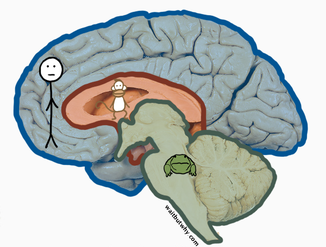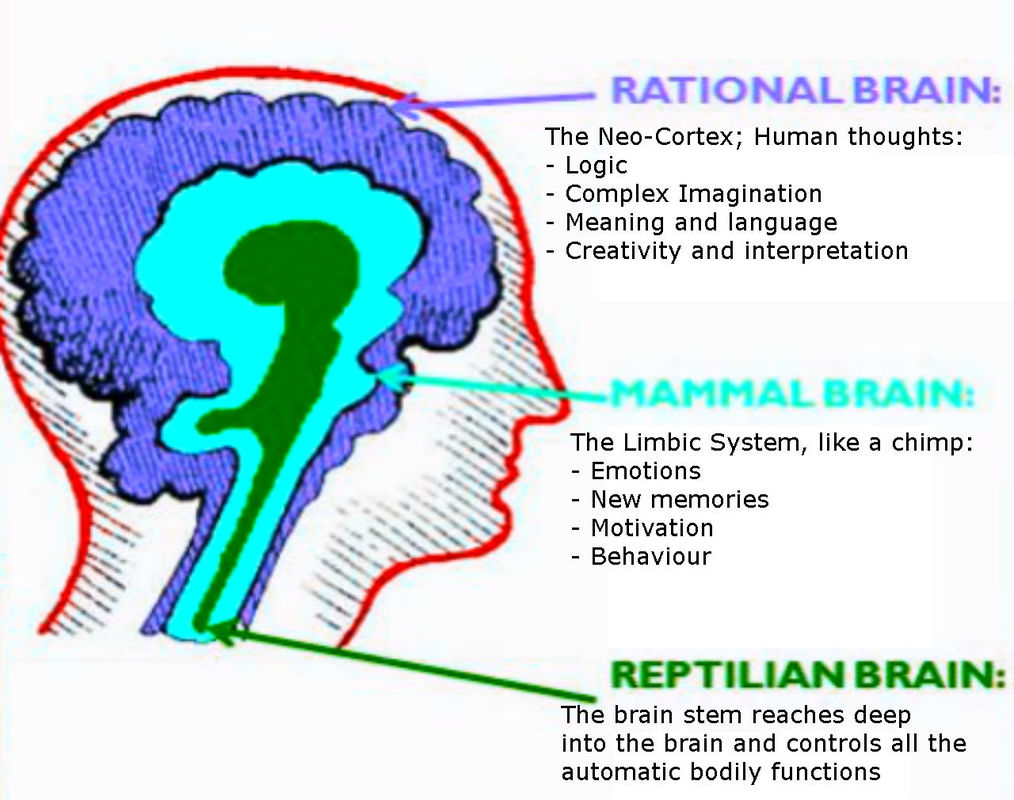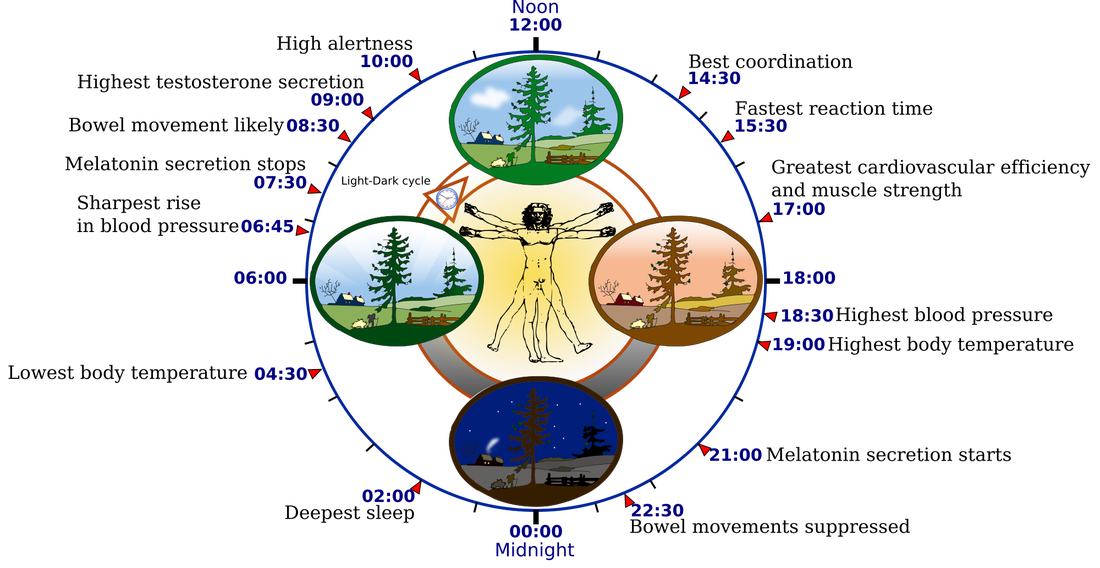|
Sleep - one of the most important elements of good physical and mental health. It is well known that quality sleep is more important than quantity of sleep, within certain parameters, and depending on age. Within this blog I'll talk briefly about that and then about how you can, not only attain better quality of sleep, but also to use it to help you mould your mind to your heart's desire! A BRIEF SCIENCE OF SLEEP At night our mind is very active whilst our body is quiet. Cellular repair occurs at a higher rate and the Glymphatic system in the spinal cord and brain clears out accumulated waste products, which can only occur during unconsciousness. Modern science understands that there are about 4-5 stages of sleep. Each stage takes some time. Stage 4/5 is known as deep or 'REM' sleep (Rapid Eye Movement). In this deep sleep the brain rests and re-organises. It is healing time for the brain to cycle through these stages. Other stages are more about refreshing the mind over shorter periods. Without dipping into REM sleep our brains and bodies grow tired and unfocused. POWER NAPS Power naps of 0-30 minutes will take you to stage 2 at most, which promotes refreshness. More than this will risk going into stage 4-6, which will make you groggy Also adding a caffeine amount, like coffee or tea, as you sleep, can help, because it takes about 30 minutes to come into the blood. Perfect timing for power naps. Alcohol blocks REM sleep. BLAME EDISON Even Thomas Edison power napped! His attitude and invention (the light bulb) helped break us out of our 'Circadian Rhythms'. His attitude was that we didn't need sleep - it was considered 'lazy'. Unlike Eddison I think 700 million years of evolution and modern science shows us that quality sleep of 7-8 hrs is probably one of the most important functions of the human body, to stay healthy. See the 8 minute video below for more information. MINDFUL MOMENTS Mindful moments can give us similar results to that of a power nap, especially when on lives in non-resistance - because then our pre-frontal cortex is a bit quieter, when we are non-judgemental. The art of meditation is to enter into a relaxed awareness, that holds all thoughts, sensations, emotions and impulses in a space of non-judgemental, or even 'loving' observation. You see there are two approximates 'ways' or 'attitudes' of looking at things, one is in resistance (judgmental, analytical, fearful) and the other is in non-resistance (accepting, allowing, appreciating) and this tends to be quiet and serene, even loving! Resistance is negative, for it depletes the body. Mindful moments break the cycle of negative thinking and put our minds into a restful awareness, which can be even better than a power nap, because it also helps us discover things about ourselves, experientially! HOW TO GET QUALITY SLEEP Cultivating 'quality' is the key, (more than quantity). So how do we do that? There is a lot of research on this and still no one really knows for sure. What has been deduced so far is that reducing noise and light in the room can be incredibly helpful (or using eye masks and ear plugs!) However, my theory is much more subtle and impossible to measure and it comes down to cultivating a similar mindset as we see in meditation. Let me explain...  RELATIONSHIP WITH YOUR INNER ANIMAL There is an old, but interesting theory of how the brain can be seen as split into 3 types, according to evolution: The Reptilian Brain, which deals with bodily functions, The Mammalian Brain, which evolved to deal with emotions and chimp-like social structures, and the Neo-Cortex, or 'Human Brain', which is the most recent extension of the chimp brain allows us to imagine complex things that don't exist, using logic and reason. It is thought that this brain evolved with our use of language. We can almost imagine these 3 parts of the brain in relationship with one another, as this long, fascinating article by WaitButWhy discusses. This is one way of looking at the brain, that may not be wholly accurate, but helps us to get an understanding of the relationship within the brain. When we place our attention, with our rational mind, on our body, with a judgemental attitude the body often responds like a chimp or reptile would - with a reaction of tension and emotion (like fear/ anger). If we cultivate a non-judgemental (or loving) attitude with the animal parts of us, they will gradually soften and relax. This is likened to horse whispering vs forcing the horse to comply. It takes time to reestablish this trust. It is only when there is self-trust that one can sleep soundly. Trust is an essential part of being able to sleep with another - even if that other is a part of you! NO FORCING Alan Watts talks about not being able to force anything. If you keep forcing something it will eventually push back. When we find ourselves in insomnia, for whatever reason, it can create panic. Thoughts can quickly become negative and unhelpful. "I need to sleep" is an unhelpful thought. Then we knee-jerk react into all kinds of negative postures, adrenaline inducing thinking and breathing (as described in my last post, about the Stress Spiral). This subtle 'need' can be a hindrance to the trust that is required for healthy sleep. When we trust that our bodies will naturally fall to sleep then it takes care of itself. So how do we reestablish trust? I have found these practices to be effective: 1. Ask and Listen - be open to what is. This could be a meditation, a jourrnalling exercise or even talking to yourself. 2. Breathe and Move - proof that you trust. This could be yoga, mindful walking, catharsis or even exercise. ASKING AND LISTENING Jamie Catto calls this 'Full Body Listening'. Asking the body what it needs, and listening for a response is a sign of respect and empathy. Breathing and moving calmly provides space for the body to be. This will, in time give you a better relationship and perspective on what your animal body/mind wants and needs in order to trust and therefore sleep soundly. CHANGING HABITS We used to have very different Circadian rhythms. Often people would wake up in the night and reflect, think, write, talk or read to candlelight. It was a quiet time for contemplation. When the mind was ready it would get sleepy again, usually after about an hour. But resistance to this process would prolong it! Whereas a natural 'allowing' of the minds changing states can give you plenty of sleep, help you get more done and allow you to feel good about it! The trick is to let go of the negative thinking - the idea that you'need' to sleep 8 hours. This can be tricky and I have specific tools to help with this and to combat insomnia - contact me for more information. CULTIVATE A NIGHT ROUTINE
This is a simple tool - setting the body and mind up for sleep can be a useful way of influencing the quality and regularity of sleep. I have therefore developed a super low-energy routine that will allow you to build trust, refocus positively and therefore allow the subconscious and animal parts of the brain and body to relax and sleep well. This involves a tricky art of awareness, allowing and appreciating. It builds trust slowly, but in order to be effective it must be repeated many times. This is why meditation is only effective is you practice regularly. The NIGHT routine will attune your mind to look for things that resonate with the focus of: NOTE: Take a moment and note what you did in your day. INSPIRE OR INQUIRE: Do something to inspire you, or recognise what/who inspired you today, OR ask questions to re frame your day. GRATITUDE: Place your mind on something or someone you feel grateful for. HONOUR: yourself. Take a moment to honour your needs, especially physical needs. TOMORROW: Decide on a wake up time, visualise the start of your day or intention. I also developed a slightly longer and more involved routine called DREAMTIME. Try one for yourself, and let me know how it goes. Here is the full NIGHT routine. Enjoy or develop your own, and sleep well! For more help contact me for some 1-1 sessions and let's allow the mind to find a peaceful sleep.
3 Comments
|
AuthorsNeil Morbey is a meditation teacher, group facilitator and inspiration guide for Positively-Mindful.com Blog Index
Archives
May 2024
|




 RSS Feed
RSS Feed